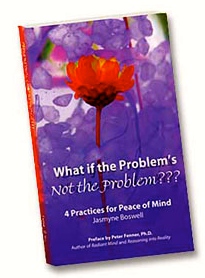(This article was written in answer to a question by a Maui Weekly reader where I had a column for a number of years)
“Lots of people want to ride with you in the Limo, but what you want is someone who will take the bus with you when the Limo breaks down.”
Oprah Winfrey
Q. What’s the difference between getting feedback/coaching from a professional coach and getting it from a good friend? Obviously my friend won’t charge me, but what can a coach do that she can’t? MK
This is a familiar question. Not knowing the friend you have in mind, I’ll give you a general answer. In short, if you have a friend who isn’t afraid to hurt your feelings, can see you through your blocks, can counsel you through your doubts, can commit themselves to you through whatever process, project or goal your wanting to accomplish, you could have a good coach in a friend.
One reason people often choose a coach over a friend is they’re afraid they will compromise their friendship in the process. If you’re working through a sensitive issue or are serious about conquering a particular ambition, your journey can be likened to that of a long distance runner or a woman having a baby. You hit “walls” you never knew you had. And if you’re going for something beyond your usual grasp, you are also likely to come up against all your personal demons.
If you are thinking about using a coach for a solo endeavor, like a good friend a coach takes some of the isolation out of the process by: listening to you during the hard times (as often as they come up) brainstorming with you when you’re stuck, giving you the advantage of another point of view and championing you through the ups and downs along the way. A good coach also knows how to critique and make suggestions, giving you honest feedback that inspires you without crushing your spirit.
Depending on what you’re embarking on, when considering working with a friend, you have to decide whether the friend actually has the time to support you. A coach makes the time because they are getting paid. Your friend may have a full/part time job or a family as their top priority. It is my experience that a good friend will want to be there for you more than they actually can be. This often becomes a sensitive issue.
Since you will be hitting all your edges, you’ll want to consider how your friend handles them self when they hit obstacles or their own limiting beliefs. Do they persevere or crumble? Or, fall somewhere in between? Do they stretch themselves and therefore know what it’s like to get frustrated when they expect more from themselves than they are able to deliver? By the way, while you’re at it, you might want to ask yourself these same questions. I’m assuming whatever you’re embarking on, if you’re needing help, you’re challenging yourself beyond your usual reach.
If you’re doing something just for the fun of it, this level of inquiry may not be as necessary. But, if you are serious about breaking through to new levels, it’s a good idea. When someone comes to me with your question (coach or friend), this is an inquiry I advise. It’s good to know where you stand, before you start; especially if you are considering hiring someone and putting your time and money on the line. Any time you stretch, you are introduced to aspects of yourself you haven’t encountered before.
About a year ago I wrote an article on what makes a good coach. Similar to what I wrote then, my advice is to contemplate the friend you’re considering and interview a few coaches. There is generally no charge for an introductory session. Either way you are entering a relationship.
Some things to consider are:
- Do you and your friend/coach have stylistic similarities? Is the chemistry right?
- Have they experienced their own successes and failures? This is important – Rarely can someone successfully take you to or rescue you from a place they haven’t traveled themselves.
- Find out how they work and what you can expect from each meeting.
- If it’s a project, make sure they can be there for the long haul.
- If you have any doubts, get referrals.
If you choose the way of a coach, they are an investment. Like an investment, you need to give your choice careful consideration. You also need to give that same consideration when choosing a friend as your guide. You don’t want to lose your momentum or enthusiasm over bad guidance. Make sure what you choose is truly in your best interest. And, consider these two quotes. Sophocles said, “Quick decisions are unsafe decisions.” Amelia Earhart said. “The most difficult thing is the decision to act, the rest is merely tenacity. The fears are paper tigers. You can do anything you decide to do. You can act to change and control your life; and the procedure, the process is its own reward.”
Best of Luck!
Published by the Maui Weekly Newspaper

